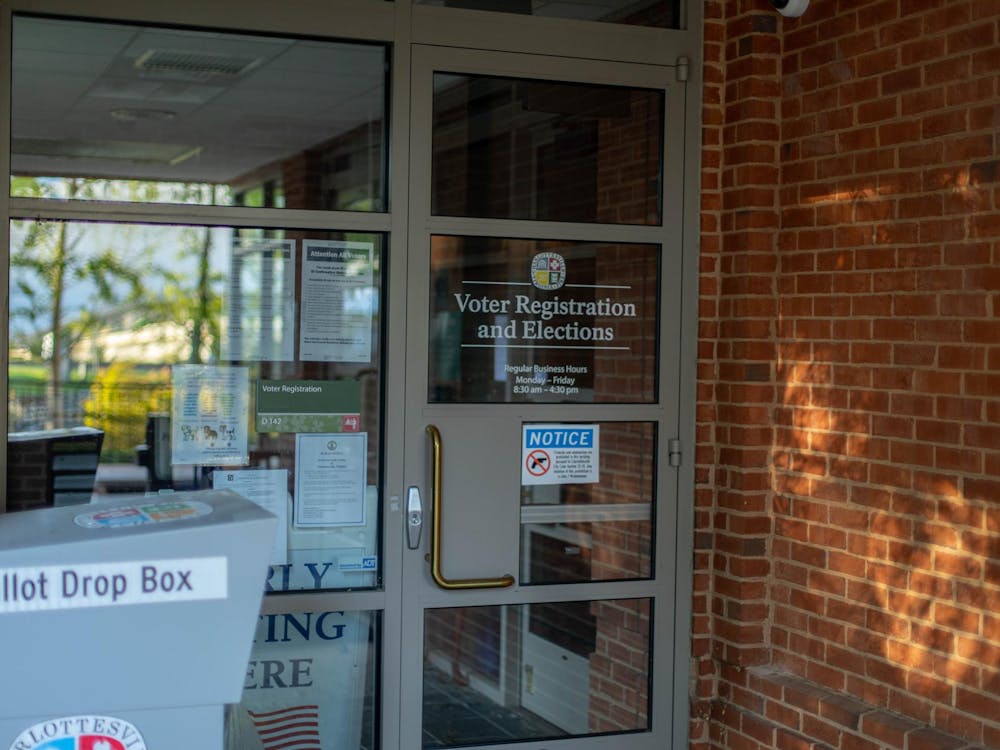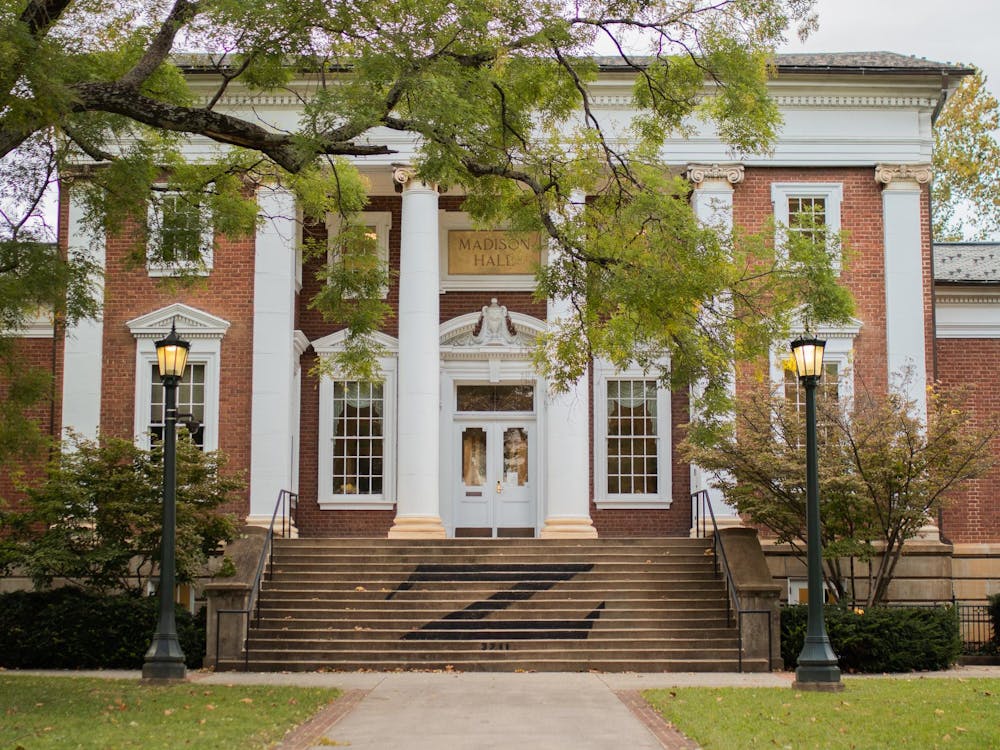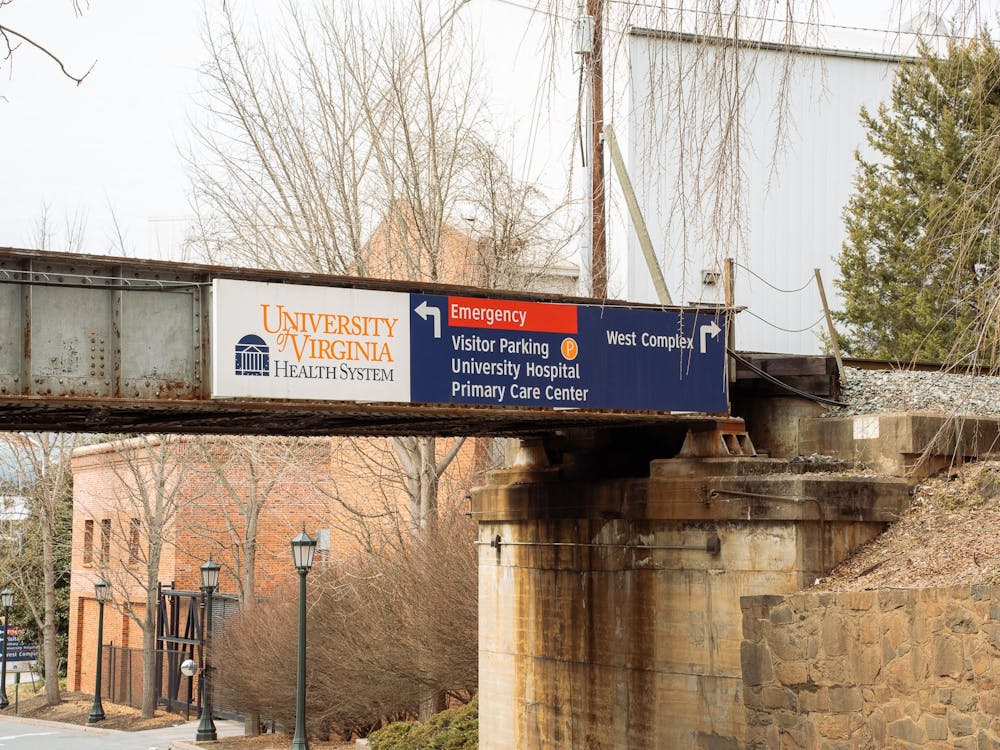The Minority Rights Coalition hosted a discussion on the Living Wage Campaign at U.Va. Monday evening. About 35 people, including students and community members, attended the event at OpenGrounds.
Global Studies Postdoctoral Fellow Laura Goldblatt and Asst. Public Policy Prof. Sally Hudson led the discussion.
“[The living wage is] the minimum amount of money that you need to be able to live in the community that you work, without relying on public assistance,” Goldblatt said. “There’s no wiggle room in that budget [for unexpected events].”
Goldblatt cited a recent Economic Policy Institute report that the current living wage in Charlottesville is $16.86. This means an individual in a four person family — two working adults and two dependent children — would need to make $16.86 per hour to pay for housing, food, childcare and out-of-pocket health care.
Third-year College student Tsering Say, a member of the MRC’s Advocacy Committee and active member of the Living Wage Campaign, organized the event. Say said that she cares about a living wage because of her personal experience. Her parents came to the United States as political refugees from Tibet, and she believes their work experience would have been greatly improved had they been granted a living wage.
In her presentation, Goldblatt distinguished between direct workers, who the University readily includes in wage estimates, and contracted workers, a group about which the University can refuse to disclose information.
“At U.Va., direct employees make at least $11.76 per hour and receive benefits, but there’s a little fuzzy math here,” Goldblatt said. “There are lots of people who work at this university who we would say work for U.Va., but technically work for contractors, like Aramark. Contracted employees can make as little as $7.25 per hour and may not receive benefits.”
The goal of the Living Wage Campaign is to raise the wages of all employees, direct and contracted. Goldblatt said she believes racial and economic justice to be linked and said that raising wages would mean improving treatment of all workers.
She elaborated on the history of the campaign at the University, which began in 1969 when students called for equal wages, following the University’s desegregation.
“At that time, over 1,000 students rallied to demand better pay and working conditions for the University’s lowest-paid employees,” Goldblatt said. “Then, as now, most of those employees were people of color, and increasingly, women of color.”
The next major campaign markers occurred in 2000, 2006, 2012 and 2017. In 2000, Goldblatt explained that the Board of Visitors raised the base wage to $8.19, as part of the student-led “$8 campaign.” In April 2006, 17 students and one professor led a sit-in to demand a living wage on Grounds. The event involved one professor’s arrest for trespassing and ended with then-President John Casteen claiming “there was no way” to raise wages, Goldblatt said.
“The summer after the sit-in, the administration quietly raises wages,” Goldblatt said, referring to the August 2006 Board of Visitors decision to increase the minimum wage to over $9 per hour.
In 2012, Goldblatt was part of a hunger strike, in which 12 students refused to eat until wages were increased.
“As before, the University said that it was not possible to raise wages … and yet, we know that over the summer, the base wage went up just over a dollar for direct employees,” Goldblatt said. “And the city of Charlottesville raised their base pay to $13 per hour.”
Goldblatt explained these events before touching on University President Teresa Sullivan’s failed 2012 ouster and detailing the “lessons learned.” Goldblatt said one of the main lessons is that student-led initiatives can lead to legitimate change in terms of wage and the way the University treats its employees. She also used Sullivan’s reinstatement as an example of the power of direct action.
She noted that money is not, in her opinion, a legitimate roadblock for the campaign.
“It’s never about money,” Goldblatt said. “I think the reason the University fights so hard against the living wage campaign is that once students know they can get things done, they’ll start asking for a whole bunch of things.”
According to Goldblatt, it would cost the University $1 million to pay every direct employee the living wage and then increase pay for contracted workers to get a living wage.
“It’s a drop in the bucket,” Goldblatt said, in reference to the University’s position as one of the wealthiest public institutions in the nation.
Hudson elaborated on the economic side of the issue later in the event.
“You can start to think of a living wage as something you value in your University,” Hudson said. “I’m very sensitive to the idea that we’re worried amount mounting student debt … The University spends so much money on what they call amenities … You just have to make the case that one of the amenities that you value in you University is supporting [the people who work here.]”
Hudson and Goldblatt agreed that students and faculty must step forward in the fight for a living wage, as employees who speak openly about their wages and work conditions risk employment.
Goldblatt said the most effective campaigns are those in which individuals from a variety of backgrounds come together, which would mean students and faculty of all levels coming together at the University.
Hudson suggested several ways in which students can get involved. One of these is to learn more about the service workers who take care of students and University facilities.
“This is the type of University where the people who clean your dorms and serve you food may be invisible,” Hudson said.
She said pulling back this curtain would encourage students who may not have been interested in helping to do more if they knew those who would benefit from increased wages.
One of Goldblatt and Hudson’s major goals for the spring semester is to conduct research into local businesses who fairly compensate their employees, then encouraging students and faculty to only give their business to these locations.
“In the same way that as students you can say what you want in your University, you can imagine that as consumers you can do the same thing — you can use the power of the purse,” Hudson said.
Hudson explained that this would benefit local businesses from a financial standpoint because they could advertise that they were a “certified employer” and benefit from increased business because of this fact.
“The great thing is that we don’t have to reinvent the wheel … We have great blueprints from other universities,” Hudson said, referring to college towns like Asheville, Durham and Chapel Hill in which living wage initiatives have had great success.
In an interview with The Cavalier Daily, Goldblatt said one of the best pieces of the campaign is the push for students “to be in solidarity with service workers” here.
“I think that one of the things that’s exciting for me is, theoretically and intellectually, as well as politically, that these two groups could be in solidarity together — that they could see themselves as mutually vulnerable and as mutually supportive of each other,” Goldblatt said. “I think that talking to service workers at U.Va. lets you know how very strongly they feel about students, and often how much they like U.Va. students, and I think that’s a real opportunity to start to bridge some of those divides.”






